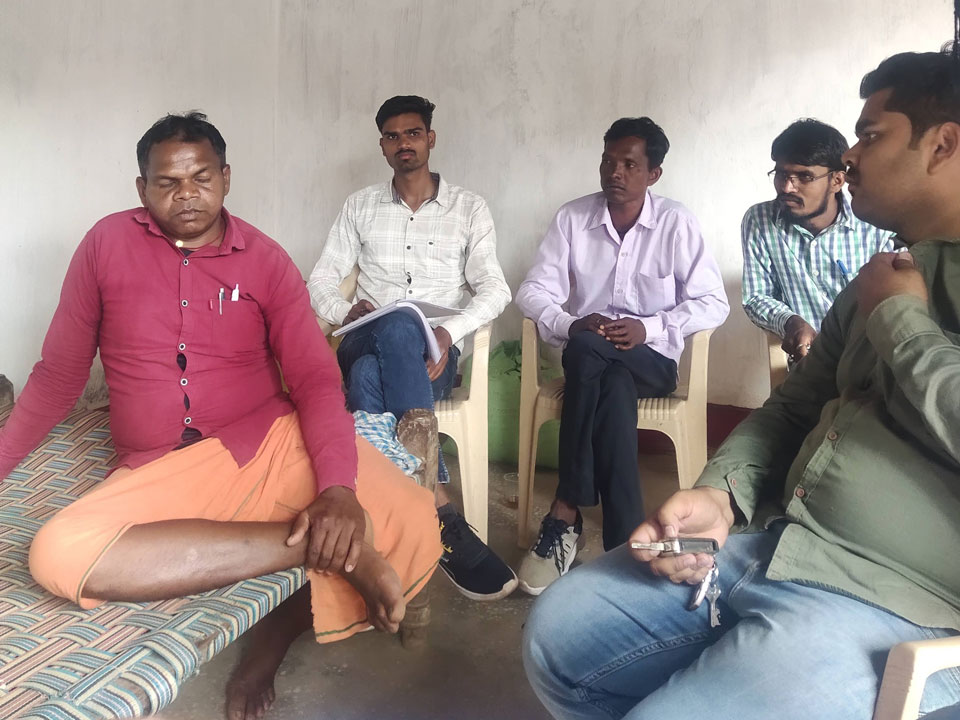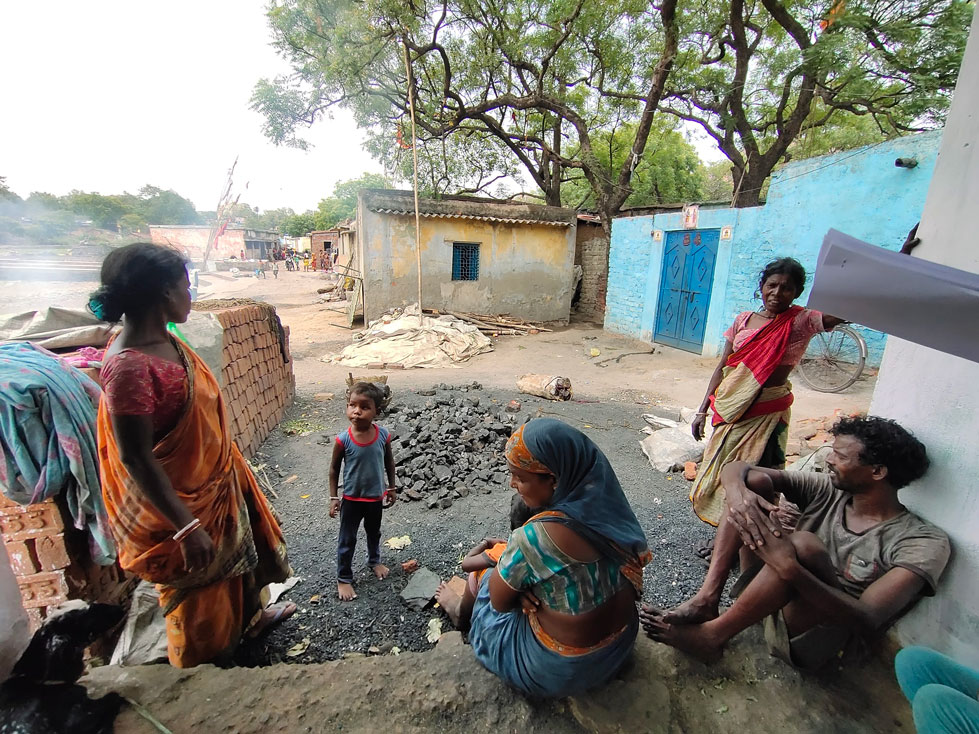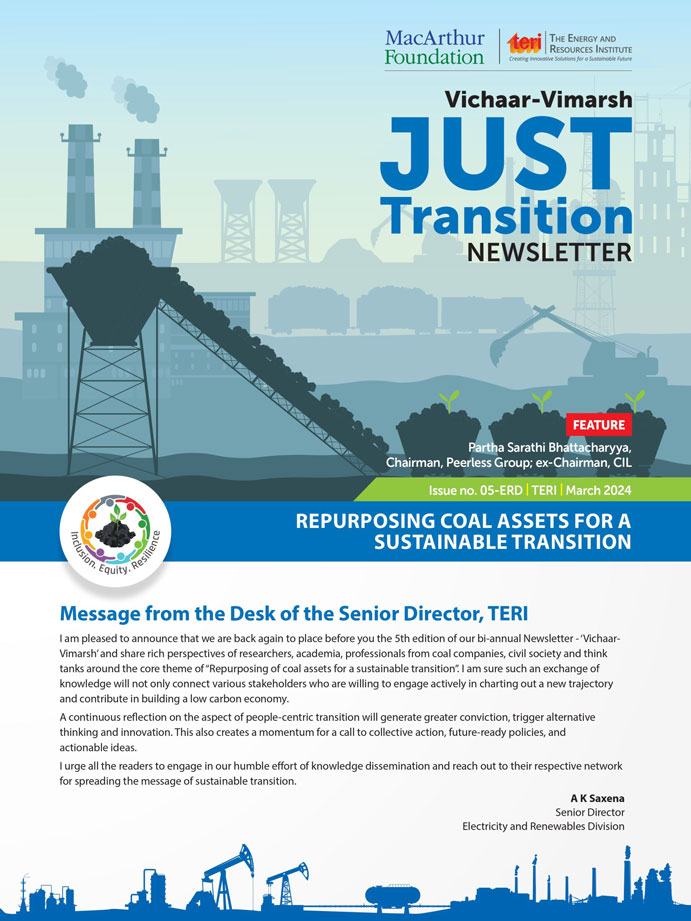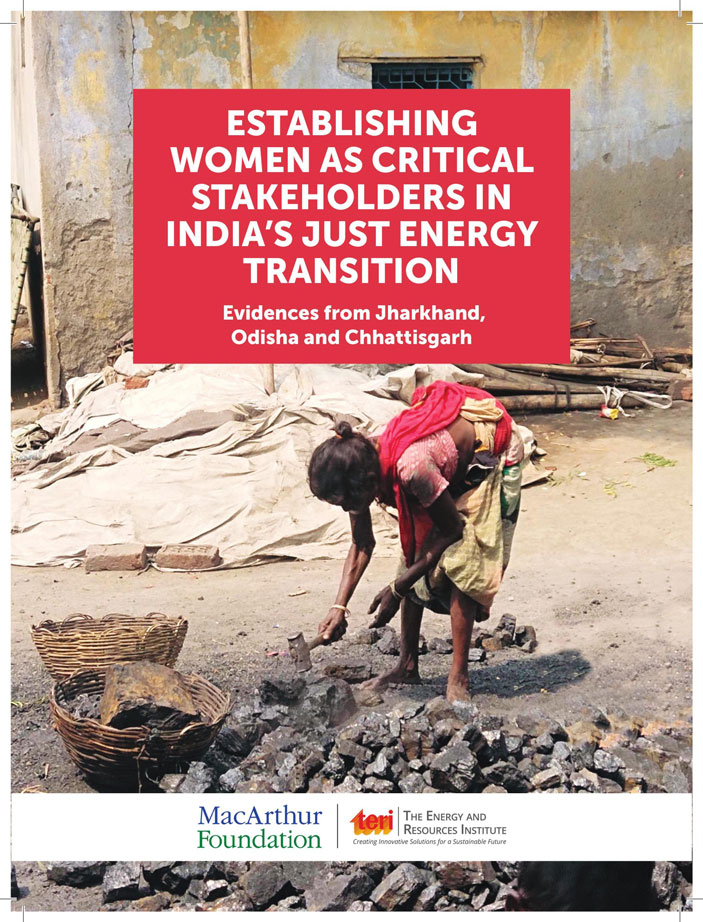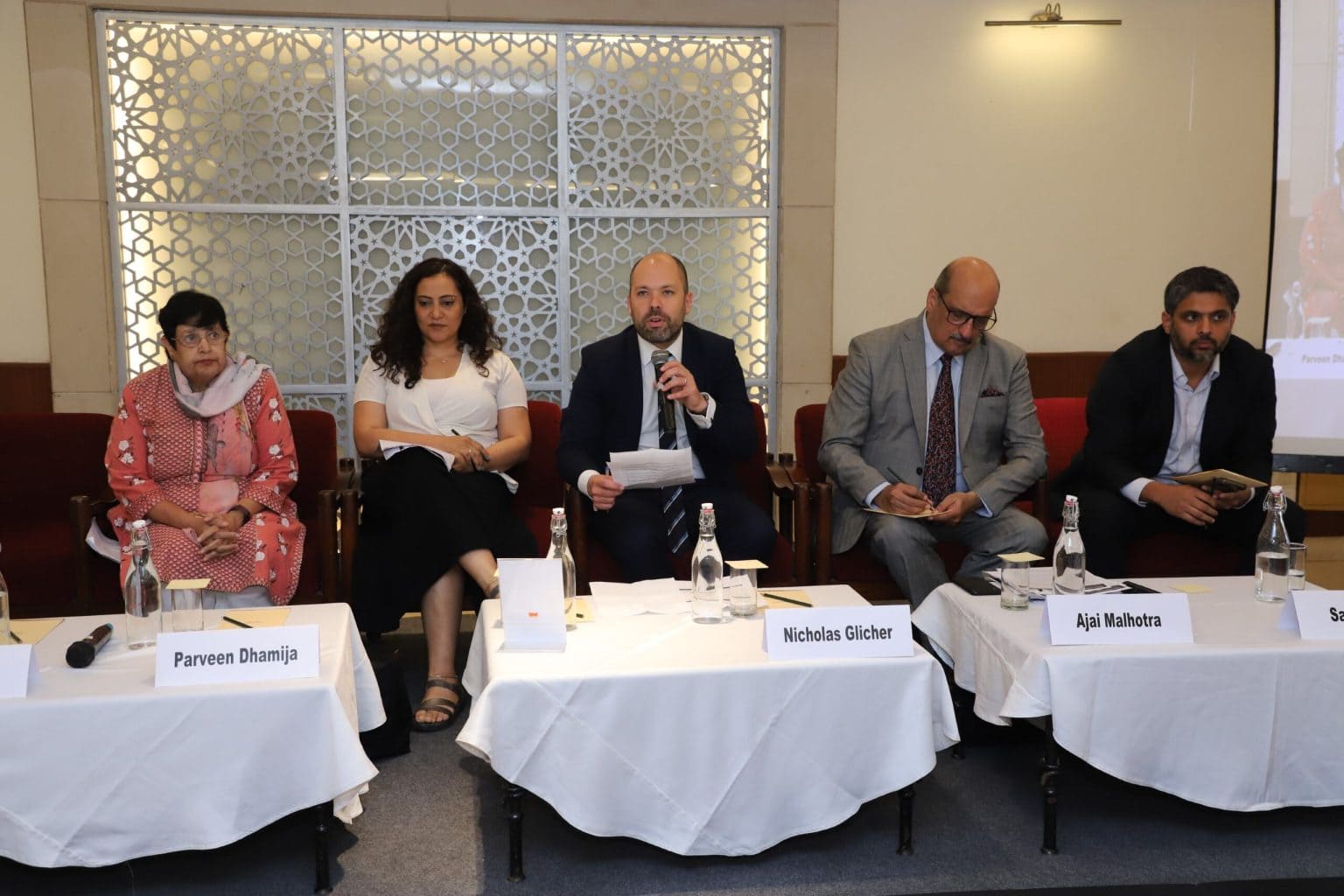Author: Admin
Old contractors’ diary
By Dr Jayanta Mitra, Senior Fellow TERI ![]()
![]()
0 Comments
Way back in 1996, FaguChaudhury used to work as a contractor for CCL (Rajrappa Project) and used to engage local youth as labourers primarily for loading coal. He narrated how the local populace was solely dependent on coal only and was the only visible avenue to make quick money as opposed to rain-fed agriculture and return therein from the meager land. Even 3-4 years ago one could see trucks lining up around colliery belts and at least 1500 labor could be seen busy loading coal. This has become an occasional affair and the KantaGhar, once a Today owing to mine closure and or relatively lesser mining and transporting coal to steel industry townships around through rail route reduced opportunities for local labour.
Dhyanesh was a labour contractor before and used to earn 2-4 K per week but in the last 3 years, he stopped doing this job and opted for farming as he owns the land. Earlier 56 mines were operational and except 3 the rest closed down. In the next 5 years, Karma Project mines will also close down. Consequently, the labour force shifted to agricultural occupation, and those who have less/no land, migrated to cities in search of jobs. Overall unemployment increased and its manifestation may be seen with increased incidence of looting on roadways and chain snatching. Sense of insecurity is rising. Hence the revival of the local economy is a necessity and it can be achieved through:
- Dona pattal (saal plate making) and market linkages
- Oil extraction from mahua seeds, karach, kusum (forest produce) and marketing of such products
- Forming collectives for kendupatta collection and bidi making and establishing a supply chain
Md. Hakim Ansari remarked “Labour contracting was a lucrative option earlier”. He used to make good money by the road selling coal loading and make labor payments to the tune of Rs. 1 lakh every month but after 2016 business is down. He opined that due to lack of improved technology the coal production has declined and he was forced to think of an alternative means of livelihood in an environment where people generally hardly think beyond coal and other opportunities appear blocked. He later opted for picking school children and dropping them at school and home and earns about 10,000 a month now. Normally agricultural land is leased out for farming and one gets enough return to meet one’s food security needs.
Questions that emerge: Can there be alternative livelihood choices in the coal belt where mines closure or reduced mining impacting lives? Whether answer lies in inclusive planning?
Event Gallery
Few ground-level stories from the TERI team’s field visits are detailed below
By Dr Jayanta Mitra, Senior Fellow TERI ![]()
![]()
0 Comments
The field visits to Jharkhand and interaction with some stakeholders in the coal value chain throws light on the plight of local people on the ground in the wake of closure or reduced mining, their overall preparedness towards a transition from coal, and the need for the planned closure of coal mining in an inclusive way to ensure the resilience of communities in and around mines. The varied views and anecdotes captured here open up the space for further deliberation and collective planning to adapt to the changing technological, socioeconomic, environmental demands and mitigate future risks.
Old contractors’ diary: Way back in 1996, Fagu Chaudhury used to work as a contractor for CCL (Rajrappa Project) and used to engage local youth as labourers primarily for loading coal. He narrated how the local populace was solely dependent on coal only and was the only visible avenue to make quick money as opposed to rain-fed agriculture and return therein from the meager land. Even 3-4 years ago one could see trucks lining up around colliery belts and at least 1500 labor could be seen busy loading coal. This has become an occasional affair and the KantaGhar, once a Today owing to mine closure and or relatively lesser mining and transporting coal to steel industry townships around through rail route reduced opportunities for local labour.
Event Gallery
Leave a Reply
Development at what cost and for whom?
Dr Jayanta Mitra, Senior Fellow TERI ![]()
![]()
0 Comments
Coal, on one hand, generates power, revenue for the State (Jharkhand) and leads to the creation of ancillary industries and service sector economy, on the other hand, it has also created an informal coal economy and powerful lobbies around that. Pilferage of coal is rampant in local mines and it benefits several segments from the poorest who have no means for livelihood and also other parties who have vested interests and get the larger share in the process, and the same stolen coal is fed into several smaller coal-dependent industries. It is a vicious cycle. The life of those at the bottom of the pyramid seems impacted most as one takes a deeper dive to gain some insights through a chat with Baleshwar (resident of Sutri village), who cycles 200 Kgs of coal through the day and travels miles before he reaches his destination to convert his effort into some wealth creation (!) end of the day. He chose to earn this way a bit early when he was quite young (12 years), years rolled and he is 35+ now. In absence of any other skills or resources, many like Baleswar find it an easy way of earning their livelihood. In the process for many, childhood is lost as they shoulder adult role at a tender age when they are not emotionally or physically mature enough and this load carrying for a long time may cause postural complexities and impact overall growth. They normally start their day as early as 3 am and walk with the cycle carrying a huge load for 30-50 km. And sometimes even more. It was not easy to stop Baleswar as he felt threatened and avoided. The fear of police deters them and somehow, they manage to cover the long-distance, hardly stop to rest and at times they leave the cycle with coal and run away due to the fear of getting caught and the penalty they may have to pay which may be more than what they can earn end of the day.
Baleswar walks like this 20 days a month and on average, covers 30 km. to reach Gola, Ranchi, or Jhalda and sell the sacks of coal (each sack will have 40 Kgs. of coal). Normally they carry about 4-6 sacks of coal to make it 200 kgs. This much coal is procured in Rs. 500 and sold in Rs. 1000. It is worth mentioning here that the raw coal stolen from the mines site is burnt for use before it reaches the market. Some are engaged only in collecting coal from mines and burning in heaps in their backyard. It was evident from such sight of burning coals at the backyard of the poorer households in the nearby villages that men in these families earn their living through collecting coal from mines illegally, passing it to the groups who carry coal to distant locations or themselves carry it in a cycle to sell it at the demand points. Those who carry it to distant locations for selling normally procure from these groups in sacks. An entire inter-dependent chain is created that way and later the same coal is supplied to traders, sweet shops, individual consumers, small ancillary industries that extensively use coal.
Baleswar earns about Rs. 10-12,000 a month. He lacks any education and other skills, landless but pen to learn new skills but he also feels it is a bit late in the day for him. He feels new skill generation for the youth may be useful.
The life of these cycle bearers carrying 200 Kgs. of coal day in and day out makes their life as dark and fragile as coal. It is just a hand-to-mouth existence and a struggle for survival and does not enable them to come out of the chronic poverty cycle. They inhale coal dust, fumes of burning coal, and their face, body, and little clothes that they wear also turn black and their tough battle makes their identity coal-like. It impacts their health severely and in absence of any social security or health coverage, their vulnerability is quite high.
Given this reality, how does one design an inclusive process to humanise the ecosystem and minimise vulnerability?
Does this manifest systemic exclusion of the poor who lack skill, access to land or resources and also do not have any social capital to fall back on or any social protection to restore their dignity or voice?
Event Gallery
Leave a Reply
REPURPOSING COAL ASSETS FOR A SUSTAINABLE TRANSITION
0 Comments
I am pleased to announce that we are back again to place before you the 5th edition of our bi-annual Newsletter – ‘Vichaar
Vimarsh’ and share rich perspectives of researchers, academia, professionals from coal companies, civil society and think
tanks around the core theme of “Repurposing of coal assets for a sustainable transition”. I am sure such an exchange of
knowledge will not only connect various stakeholders who are willing to engage actively in charting out a new trajectory
and contribute in building a low carbon economy.
Event Gallery
Just Transition Framework for a Sustainable Future in India’s Coal Mining Regions (WSDS 2024)
0 Comments
The 23rd edition of the World Sustainable Development Summit (WSDS) in New Delhi focused on ‘Leadership for Sustainable Development and Climate Justice’. The Electricity and Renewables Division organized a thematic session on the ‘Just Transition Framework for a Sustainable Future in India’s Coal Mining Regions’ and the framework report was released by Mr. Amrit Lal Meena, Secretary of the Ministry of Coal, Government of India.
The framework has its theortical basis in the concept of procedural, distributive and restorative justice and combines it with actionable strategies for socio-economic and environmental resilience. It systematically charts stakeholders, delineates challenges, sets benchmarks for progress, and aligns with India’s goal for netzero emissions by 2070. Mr. Amrit Lal Meena also
Event Gallery
Just Transition: Future of Coal & Pathways to Low Carbon Footprint
0 Comments
TERI, in partnership with the Indian Institute of Technology (Indian School of Mines), Dhanbad, hosted a seminal national seminar on “Just Transition: Future of Coal & Pathways to Low Carbon Footprint” in Kolkata on January 31, 2024. This pivotal seminar brought together leading figures from the energy sector, academia, and policymaking to discuss the pathways for India’s energy transition from coal to sustainable alternatives. It served as a dynamic forum for examining innovative solutions for the reutilization of coal mines, green support for coal-dependent MSMEs, and the development of a sustainable, equitable transition framework. The discussions were underpinned by the urgent need for a Just Transition, focusing on safeguarding community and worker welfare amid the move from coal, and included debates on policies for retraining, social protection, and fostering job growth in new, green industries. The seminar’s agenda was thoughtfully designed around thematic sessions on repurposing closed mines, enhancing economic competitiveness alongside environmental sustainability, and opportunities for reskilling in green jobs. A concluding plenary session dedicated to co-creating actionable strategies for a resilient, low-carbon future in the coal sector underscored The seminar had a structured agenda that included an introductory session, Thematic session I: Repurposing of closed mines and diversification of the local economy, Thematic session II: Balancing Economic Competitiveness and Environmental Sustainability: Green Transition for Coal Dependent MSMe’s, Thematic session III: Reskilling and Upskilling for Green Jobs – Opportunities as the Coal Sector Transitions to a Low-Carbon Economy and Plenary session: Charting a Sustainable Path: Co-Creating Action for a Low-Carbon, Resilient Future in the coal sector.
Event Gallery
ENHANCING STAKEHOLDER ENGAGEMENT FOR A JUST ENERGY TRANSITION
0 Comments
On behalf of TERI, I take this opportunity to thank the researchers, practitioners, academia and civil society for their
contributions to the newsletter. I am happy to inform them that the encouraging feedback we have received so far has
resulted in promoting mutual learning and developing a diversified knowledge pool. TERI is happy to facilitate this
discourse, broaden the engagement and deepen the understanding on the subject through this communication. I am sure
that an initiative like this will also shape our future thinking and action and open the door for networking and collaboration
as we share a common goal and aspire to build a resilient future through shared vision.
Event Gallery
ESTABLISHING WOMEN AS CRITICAL STAKEHOLDERS IN INDIA’S JUST ENERGY TRANSITION Evidences from Jharkhand, Odisha and Chhattisgarh
Apoorva Singh, Arpita Victor, TERI Press ![]()
![]()
0 Comments
Coal continues to remain the mainstay of India’s energy portfolio mix. The climate change considerations and the increasing competitiveness of cleaner sources of energy are likely to increase the momentum of the transition towards non-fossil fuel-based sources. According to an estimate, this move would impact approximately 13 million people who are dependent on coal either directly or indirectly for a livelihood.
Women form only 6.7% of the coal workforce according to figures from Coal India Limited (CIL), but this number only includes women who have regular employment with the company. Approximately 70% of India’s coal workforce is estimated to be informal – casual or contract labour. This is where a large number of women are likely to be concentrated. It is important therefore to bring about a just transition incrementally towards non-fossil fuel-based options that is sensitive to the gendered impacts of decarbonization as “there is no climate justice without gender justice”.
In this backdrop, TERI has drafted a discussion paper titled ‘Establishing women as critical stakeholders in India’s just energy transition: Evidences from Odisha, Jharkhand and Chhattisgarh’ which is part of the larger project on Just Transition supported by MacArthur Foundation. This paper highlights the gender perspective of vulnerability present in the coal-producing geographies of India. Under-representation in the energy sector, the concentration of women in informal work, loss of agricultural and homestead land, unemployment-induced alcoholism and domestic violence, and lack of agency in decision-making at the institutional level, are some of the keys issues that exacerbate women’s vulnerabilities in the light of the transition to a net zero pathway, if left unaddressed.
Insights from in-depth fieldwork carried out in Odisha and Chhattisgarh have prompted us to frame recommendations for a gender-just energy transition. A specific focus on women and their issues misses the emphasis that it requires. Through this paper, we thus argue for the need to establish women as critical stakeholders in just transition dialogues and make future policies more gender-inclusive.
Event Gallery
Just Transition India convening
0 Comments
TERI in collaboration with Thomson Reuters Foundation (TRF) had a convening on Just Transition in India which included a multi-stakeholder workshop titled ‘Building a resilient future: Investing in green jobs and reskilling for women workers’. This workshop was planned in the context of India’s G20 presidency in 2023, alongside the parallel Business20 (B20) and Think20 (T20) deliberations, and aimed to provide an inclusive space for key stakeholders from India›s private sector, civil society, media, academia, and labour organisations to discuss how adequate investment opportunities, financing for green jobs and reskilling initiatives could enable equitable and sustainable solutions for India’s workers and businesses. The workshop began with opening remarks from Dr. Jayanta Mitra, Senior Fellow, TERI and Mr.Nicholas Glitcher, COO, TRF. It had 3 thematic break-out sessions on the following topics-
• Theme I – Sustainable financing for green jobs and worker support
• Theme II – Empowering women workers and reskilling
• Theme III – Financing for a just transition
Each theme had a domain expert who provided the necessary guidance to the participants and a moderator to steer the discussion. The domain experts included Dr. Parveen Dhamija, Advisor, Skill Council for Green Jobs (Theme I), Sabina Dewan, President and Executive Director, JustJobs Network (Theme II), Sandeep Pai, Director, Research & Strategy, Swaniti Initiative (Theme III).
The workshop was moderated Amb. Ajai Malhotra, Distinguished Fellow, TERI and also saw participation from Mr. Varad Pande, Partner & Director, BCG during the panel discussion. The event was attended by participants from other research organization, journalists, NGOs, students as well as heads of organizations. Mr. Girish Sethi, Senior Director, TERI and Mr. Nicholas Glitcher, TRF gave the concluding remarks and vote of thanks respectively
Event Gallery
Experts’ Roundtable on Gender-Just Transition
0 Comments
TERI organized a closed door Experts’ Roundtable to discuss a Discussion Paper on Gender-Just transition that had been drafted by the team. The Discussion Paper is titled ‘Establishing Women as Critical Stakeholders’ in India’s Just Energy Transition: Evidences from Jharkhand, Odisha and Chhattisgarh’ and aims to highlight the importance of including women as an important stakeholder in the just transition discourse. The paper brings out the gendered nature of vulnerabilities that are present in the coal geographies of India and offers recommendations to make the energy transition process more gender-inclusive. The roundtable began with a presentation from TERI’s side taking the audience through the discussion paper and was followed by a detailed dialogue on the issue. The experts reviewed the paper and offered insightful ways in which the paper could be strengthened further.
The experts included –
- Dr. Smriti Das, Associate Professor, XLRI Jhajjar
- Dr. Suravee Nayak, Associate Fellow, Sustainable Futures Collaborative
- Roli Srivastava, Founder The Migration Story
- Dr. Upasona Ghosh, Assistant Professor, Indian Institute of Public Health, Bhubaneshwar
The event also saw participation from various other research organizations, academicians, students etc. who also shared their thoughts and made the discussion an enriching one. We were heartened to see everyone’s interest in our work and are deeply gained by their invaluable inputs.

